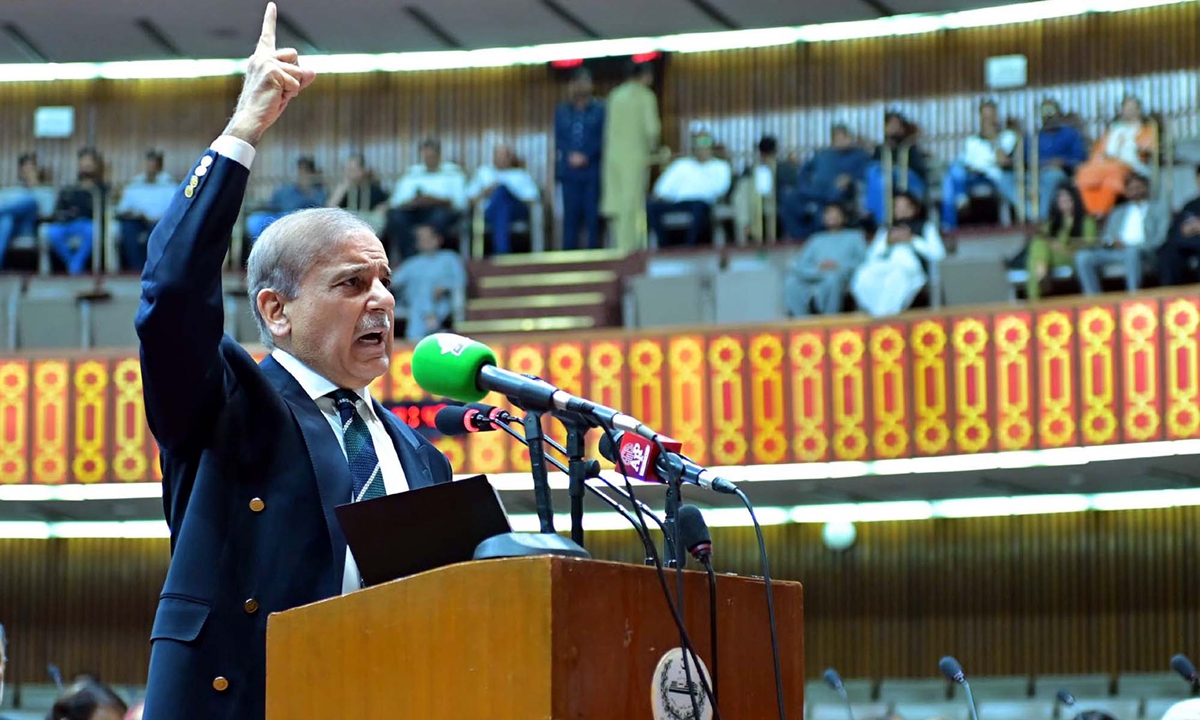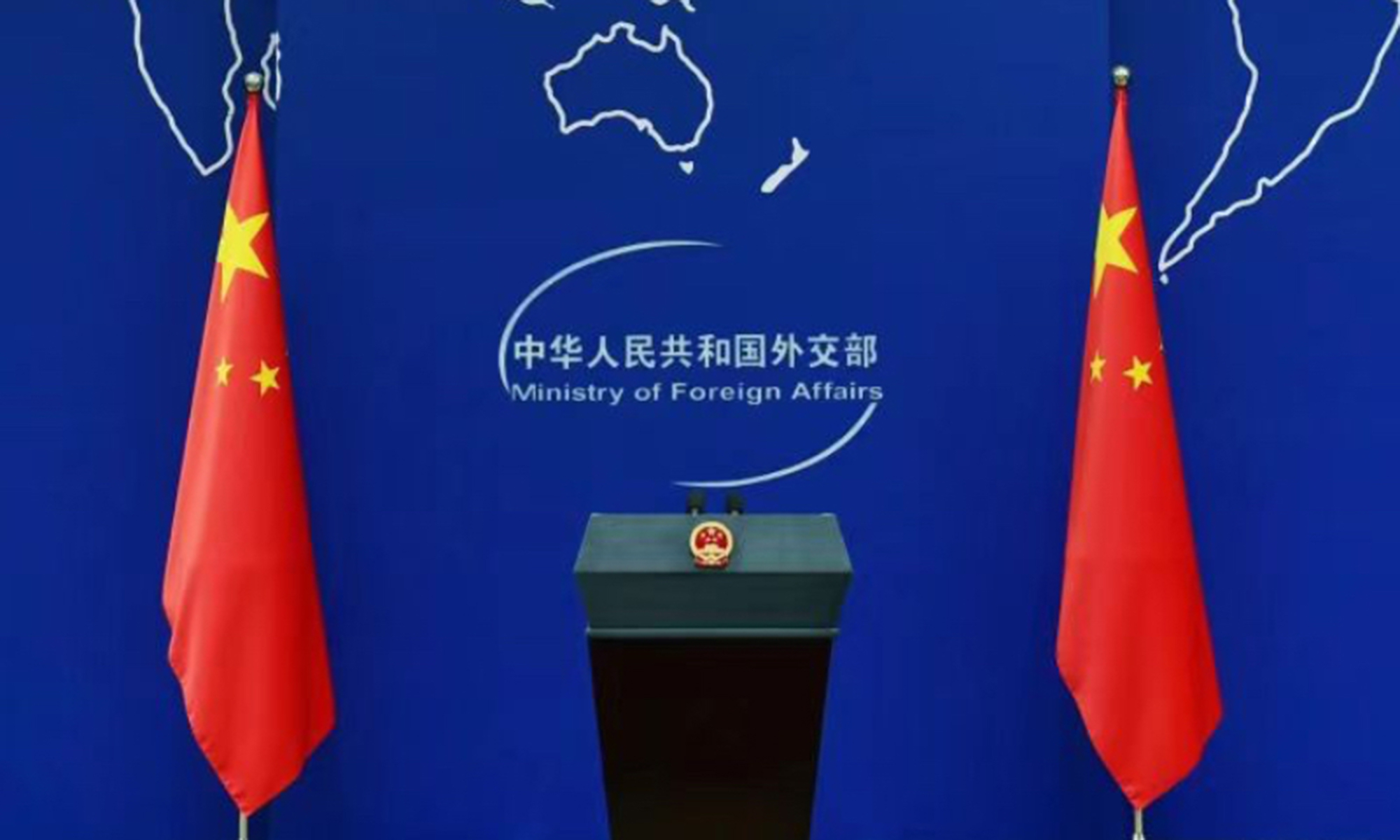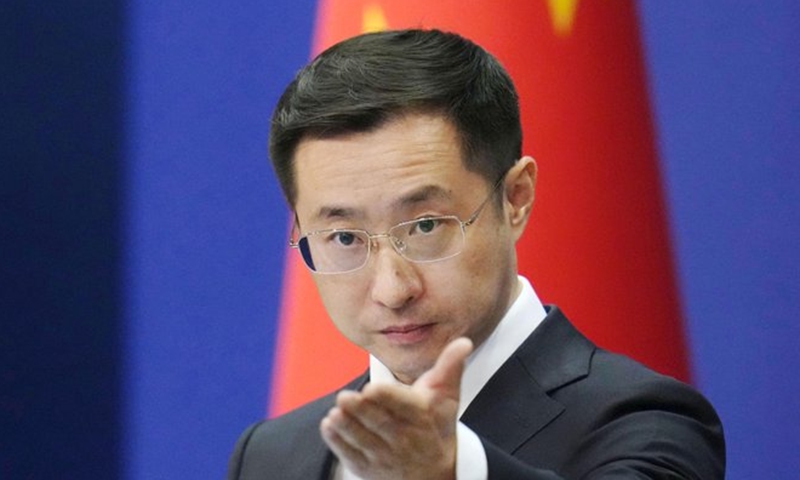Pakistani PM vows to avenge 'our innocent martyrs'; India FM warns any attacks will be met with 'firm response': media

Pakistani Prime Minister Shehbaz Sharif says while addressing the National Assembly on May 7, 2025 that his country is fully capable of defending its geographical boundaries as well as responding to any kind of Indian aggression. Photo: VCG
Pakistani Prime Minister Shehbaz Sharif said "we will avenge the blood of our innocent martyrs" following the India's attack on Punjab province and Pakistan-administered Kashmir, Al Jazeera reported on Thursday.
According to CNN, Prime Minister Shehbaz Sharif lauded his country's air force following a claim by military sources that it shot down five Indian fighter jets, and said "We are a nuclear power and a conventional warfare power. There is no higher respect and honor than this," as he addressed the country's parliament in capital Islamabad for the first time since India's attack early on Wednesday local time.
"Our armed forces were on standby 24/7, ready to shoot down enemy jets the moment they took off and throw them into the sea," Sharif said in an address. "The five Indian planes that went down last night could have been 10, but our pilots and falcons acted with caution," the New York Times reported.
India's External Affairs Minister S Jaishankar warned that "military attacks on us…will be met with a very, very firm response," as he claimed India's cross-border strikes on Pakistan were "targeted and measured," Al Jazeera reported.
The Indian Army has accused Pakistan Army posts "resorted to unprovoked fire using small arms and artillery guns across the LoC in areas opposite Kupwara, Baramulla, Uri and Akhnoor areas in J&K," and said "Indian Army responded proportionately," Indian news media NDTV reported on Thursday.
At least one civilian was killed and five others, including four military personnel, were injured in a series of drone strikes by India targeting multiple locations in Pakistan since the early hours of Thursday, the Pakistani military said Thursday, Xinhua reported.
In a statement, the Inter-Services Public Relations (ISPR), the media wing of the Pakistani army, said 25 Harop drones had been shot down using a combination of electronic countermeasures and kinetic fire since the escalation began, per Xinhua.
Earlier in a media briefing, ISPR Director General Lieutenant General Ahmed Sharif Chaudhry said one drone partially struck a military installation near Lahore, the capital of eastern Punjab province, injuring four personnel and causing minor damage to equipment. In a separate incident, one civilian was killed and another injured in the Miano area of Sindh province, said the report.
Pakistan claimed it shot down five planes and at least one drone: three Rafale fighter jets, one MIG-29 fighter aircraft, one Su-30 fighter jet and one Heron drone, the New York Times reported.
In a post on X, The Indian Embassy in China on Wednesday attempted to label an article of the Global Times which reported that Pakistani forces had downed Indian fighter jets, citing Xinhua report, as "disinformation."
However, CNN quoted a high-ranking French intelligence official as saying that one Indian Air Force Rafale was shot down, marking what would be the first known loss of the advanced French-built warplane in combat.
It is too early to say that the tensions have eased. Both sides have suffered casualties and damage, and public opinion in both countries may continue to fuel the possibility of further military action, Qian Feng, director of the research department at the National Strategy Institute at Tsinghua University, told the Global Times on Thursday.
Each side may feel it has been wronged in the current conflict. While the likelihood of full-scale war remains low at this stage, neither is willing to show weakness amid strong domestic sentiment. This creates fertile ground for further escalation, Liu Zongyi, director of the Center for South Asia Studies at the Shanghai Institutes for International Studies, told the Global Times.
Qian added that while large-scale war appears unlikely, "clashes and friction are expected to persist," warning that "given that both India and Pakistan are nuclear powers, prolonged conflict carries enormous risks."



